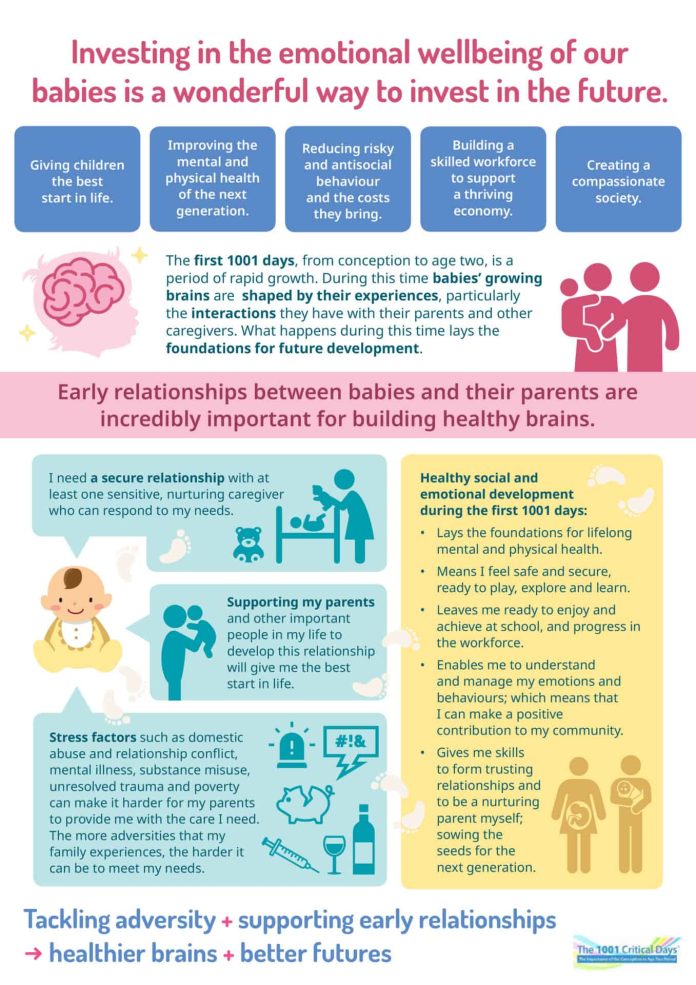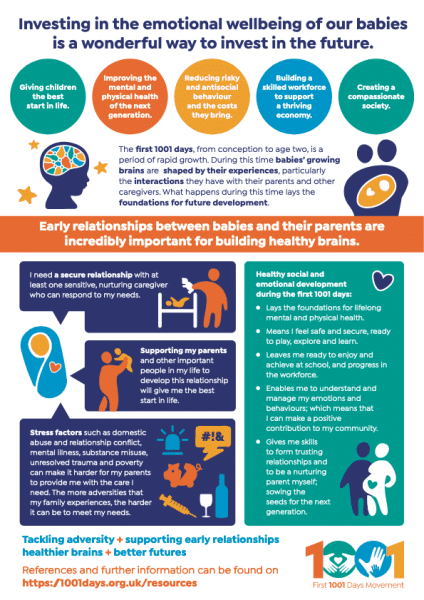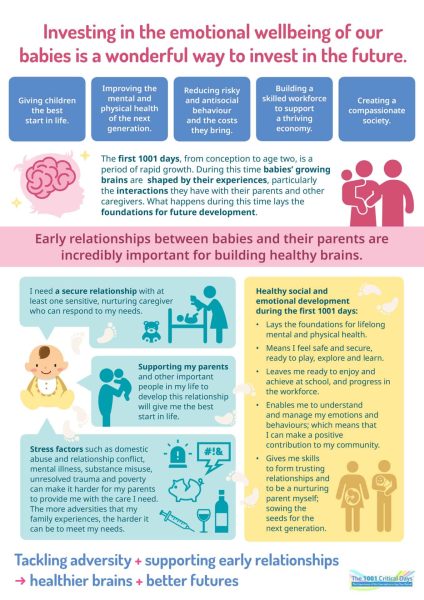Being a new parent is an incredibly joyful and transformative experience, but it can also be emotionally overwhelming. In this article, we explore the essential emotional needs that new parents often find themselves grappling with. From the need for support and understanding to the importance of self-care, we dive into the intricate emotional landscape that accompanies the journey of parenthood, providing insights and practical tips for navigating this beautiful yet challenging chapter of life.
Review contents
Understanding the Emotional Needs of New Parents
Navigating the Rollercoaster of Emotions
Becoming a new parent is an exhilarating and transformative experience. However, it can also be an emotional rollercoaster. From the joy and excitement of bringing a new life into the world to the feelings of overwhelm and exhaustion, the emotions that new parents experience are varied and intense. As new parents, we need to recognize and navigate these emotional ups and downs with compassion and understanding. It is essential to remember that it is normal to feel a wide range of emotions during this time, and seeking emotional support is crucial in helping us navigate this journey.
Recognizing the Importance of Emotional Support
Emotional support is vital for new parents as they navigate the challenges and joys of parenthood. Having someone to share our thoughts, fears, and triumphs with can be incredibly comforting and reassuring. Whether it’s a partner, family member, or a close friend, having someone who actively listens and offers empathy can make a world of difference in our emotional well-being. It is crucial to communicate our needs to our support system and let them know how they can provide emotional support for us.
Building Confidence and Self-Esteem
One of the most significant emotional needs for new parents is building confidence and self-esteem. Bringing a new life into the world comes with a tremendous responsibility, and it is natural to question our abilities as parents. However, it is essential to remember that no one is a perfect parent, and we are all learning as we go. Taking the time to educate ourselves about parenting, seeking advice from trusted sources, and celebrating our successes, no matter how small, can help boost our confidence and self-esteem. Remember, we are doing our best, and that is more than enough.
Addressing Feelings of Isolation and Loneliness
Parenthood can sometimes feel isolating, especially in the early stages when we may be spending much of our time at home caring for our little one. It is common for new parents to experience feelings of loneliness as their social lives may change, and they may have limited time for other relationships. However, it is crucial to address these feelings and seek ways to connect with others. Establishing a support network of other new parents can be incredibly beneficial in combatting loneliness. Joining parenting groups or attending community classes can offer opportunities to meet like-minded individuals who are going through similar experiences. Additionally, reaching out to friends and family for social interactions and seeking online communities can help alleviate feelings of isolation.
Managing Stress and Overwhelm
Recognizing the Impact of Sleep Deprivation
Sleep deprivation is a significant challenge faced by new parents and can have a profound impact on our emotional well-being. The demands of a newborn’s round-the-clock feeding and care can leave us feeling exhausted and overwhelmed. It is crucial to recognize the importance of prioritizing our sleep and finding ways to manage sleep deprivation. Seeking help and sharing nighttime responsibilities with a partner or loved one, establishing a consistent sleep schedule, and taking short naps when possible can all contribute to improved sleep and reduced stress levels.
Coping with Postpartum Depression and Anxiety
Postpartum depression and anxiety are common mental health conditions that can affect both mothers and fathers. It is essential for new parents to be aware of the signs and symptoms of these conditions and seek professional help if needed. Remember, experiencing postpartum depression or anxiety does not make us a bad parent or mean that we are incapable of caring for our child. Seeking therapy, counseling, or speaking with our healthcare provider can provide the necessary support and resources to cope with these conditions.
Finding Ways to Relax and Recharge
As new parents, finding moments of relaxation and self-care may seem challenging, but it is essential for our emotional well-being. Taking time for ourselves, even in small increments, can help us recharge and better manage stress. Simple activities such as taking a hot bath, going for a walk, reading a book, or practicing deep breathing exercises can all contribute to moments of relaxation. It is crucial to communicate our needs to our support system and carve out dedicated time for ourselves regularly.
This image is property of parentinfantfoundation.org.uk.
Maintaining Healthy Relationships
Nurturing the Parent-Child Bond
Developing a strong bond with our child is essential for their emotional development and our own satisfaction as new parents. Taking the time to engage in activities that promote attachment, such as breastfeeding, skin-to-skin contact, and frequent eye contact, can help nurture the parent-child bond. Additionally, engaging in playtime, cuddling, and responding promptly to our baby’s needs can also help strengthen this special relationship.
Maintaining a Strong Partnership
The arrival of a new baby can put a strain on our romantic relationship, as the focus shifts from being a couple to being parents. However, it is crucial to prioritize our partnership to maintain a healthy and fulfilling relationship. Finding time for date nights, having open and honest communication, and supporting each other in our roles as parents are all vital in nurturing our relationship. It is important to remember that we are a team and should work together to navigate the challenges and joys of parenthood.
Cultivating Supportive Friendships
While parenthood may open up a whole new world, it is important not to neglect our existing friendships. Maintaining connections with friends who understand and support us can provide much-needed emotional support and perspective. It is essential to reach out to friends, schedule regular catch-ups or virtual chats, and share our experiences, both the highs and the challenges. Cultivating supportive friendships can help us feel understood and less alone in our journey as new parents.
Balancing Personal Identity and Parenting
Rediscovering Self-Identity
Becoming a parent is a transformative experience that can sometimes overshadow our individual identities. It is vital for our emotional well-being to carve out space for ourselves and rediscover our self-identity. Exploring our interests, passions, and hobbies outside of parenting can help us maintain a sense of self. Whether it’s joining a book club, taking up a new hobby, or pursuing personal goals, prioritizing our individuality can positively impact our overall happiness and emotional fulfillment.
Finding Time for Self-Care
Self-care is often neglected when we become parents, yet it is more crucial than ever. Taking care of our own physical, emotional, and mental well-being is an essential part of being a good parent. Finding time for self-care can be challenging but not impossible. It may involve asking for help from our support system, establishing a regular self-care routine, or taking advantage of periods when our baby is asleep. Engaging in activities that nourish our soul and replenish our energy, such as exercise, reading, listening to music, or practicing mindfulness, can all contribute to our emotional well-being.
Exploring Hobbies and Activities
Finding joy and fulfillment outside of parenting can greatly contribute to our emotional well-being. Exploring new hobbies and activities can help us maintain a sense of fulfillment and balance in our lives. Whether it’s painting, gardening, cooking, or playing a musical instrument, engaging in activities that bring us joy and allow us to express ourselves can have a positive impact on our overall emotional health. It is important to make time for these activities and not feel guilty for pursuing our passions alongside our parenting responsibilities.
This image is property of www.verywellfamily.com.
Seeking Emotional Guidance and Resources
Utilizing Professional Counseling or Therapy
Sometimes, we may need professional guidance and support to navigate the emotional challenges of parenthood. Seeking counseling or therapy can provide a safe and confidential space to express our feelings, work through any underlying issues, and develop healthy coping mechanisms. A trained therapist can help us explore our emotions, provide valuable insights, and equip us with the necessary tools to manage stress, anxiety, or any other emotional challenges we may be facing.
Joining Parent Support Groups
Connecting with other parents who are going through similar experiences can be invaluable for our emotional well-being. Joining parent support groups can provide a sense of belonging and understanding. These groups offer a safe environment to share experiences, seek advice, and gain reassurance from others who are going through similar journeys. Hearing others’ perspectives and knowing that we are not alone in our struggles can be comforting and empowering.
Accessing Online Forums and Communities
The digital age has made it easier than ever to access emotional support and resources for new parents. Online forums and communities dedicated to parenthood can provide a wealth of information, guidance, and a platform to connect with others. These platforms allow us to ask questions, share experiences, and seek advice from a diverse group of individuals who can relate to our specific situation. It is important, however, to approach online communities with caution and verify the credibility of the information shared.
Accepting and Adapting to Change
Embracing the New Role of Parenthood
Becoming a parent requires adapting to a significant lifestyle change and embracing a new role. It is common to experience a mix of emotions as we adjust to our new responsibilities and routines. Embracing this new role of parenthood involves accepting that change is a natural part of life and being open to learning and growing through the process. It is important to approach this journey with flexibility and a willingness to evolve as both individuals and parents.
Understanding the Impact of Hormonal Changes
Hormonal changes are an integral part of the postpartum period for new parents, particularly mothers. These hormonal fluctuations can contribute to emotional changes, including mood swings, irritability, and feelings of sadness or anxiety. Understanding that these hormonal changes are normal and temporarily affect our emotional well-being can help us navigate this period with more self-compassion and patience. It is crucial to communicate these emotions with our support system and seek professional help if needed.
Developing Flexibility and Resilience
Parenthood is filled with unexpected challenges and moments of uncertainty. Developing flexibility and resilience is key to navigating these ups and downs. Being able to adapt to changing circumstances, adjust expectations, and find creative solutions can help us navigate parenting with more ease. Cultivating resilience involves recognizing that setbacks are a part of life and viewing them as opportunities for growth rather than dwelling on them as failures. By developing these qualities, we can better manage stress, cope with unexpected situations, and maintain our emotional well-being.
This image is property of res.cloudinary.com.
Building a Strong Support System
Relying on Family and Friends for Support
The support of family and friends is invaluable for new parents. Lean on your loved ones for assistance, whether it’s help with household chores, babysitting, or lending an empathetic ear. Communicate your needs with your support system and allow them to share in your joys and challenges as new parents. Remember, you do not have to do it all alone, and seeking support from others is a sign of strength and wisdom.
Engaging with Parenting Classes and Workshops
Parenting classes and workshops are excellent resources for emotional support and learning. These classes provide valuable information on a range of topics, including infant care, breastfeeding, postpartum well-being, and child development. Engaging in these educational opportunities can help boost our confidence as parents and provide a platform for connecting with other new parents. From local community centers to online platforms, there are various options available to suit individual preferences and circumstances.
Connecting with Other New Parents
Building relationships with other new parents can provide a sense of camaraderie and understanding. Seek out opportunities to connect with other parents, whether it’s through playgroups, parenting classes, or online communities. These connections allow you to share experiences, exchange advice, and offer support to one another. Knowing that you are not alone in your journey can be incredibly reassuring and help validate your emotions and experiences as a new parent.
Expressing and Processing Emotions
Sharing Experiences and Feelings with Loved Ones
Opening up to loved ones about our experiences and feelings can be incredibly therapeutic. Whether it’s sharing the joys, challenges, or concerns of parenthood, having a trusted confidant who actively listens and offers support can help us process our emotions. Expressing our thoughts and feelings in a safe and non-judgmental space can provide comfort, validation, and a sense of relief. Don’t hesitate to reach out and share your experiences with those who offer unconditional love and support.
Utilizing Artistic Expression as a Form of Catharsis
Artistic expression can serve as a powerful medium for releasing pent-up emotions and finding solace. Whether it’s painting, drawing, writing, or playing a musical instrument, engaging in creative activities can provide a pathway for self-expression and catharsis. These outlets allow us to explore and process our emotions in a non-verbal manner, offering a unique form of release and healing. Embrace your creativity and find solace in artistic endeavors that resonate with you.
Journaling to Explore and Process Emotions
Journaling is an effective tool for self-reflection and processing emotions. Taking the time to write down our thoughts, experiences, and feelings can help us gain clarity and uncover underlying emotions. Whether it’s keeping a gratitude journal, writing about our daily experiences, or engaging in free writing, journaling can provide an opportunity for self-discovery and emotional exploration. Make it a habit to set aside some time each day or week to reflect on your journey as a parent and let your thoughts flow onto the pages.
This image is property of www.cope.org.au.
Managing the Pressure of Perfection
Letting Go of Unrealistic Expectations
The pressure to be a perfect parent can be overwhelming and detrimental to our emotional well-being. It is important to let go of unrealistic expectations and embrace the fact that it is impossible to be perfect. Embrace the messiness and imperfections of parenting, knowing that making mistakes is a natural part of the learning process. Focus instead on being a present and loving parent, and remember that good enough is truly enough.
Celebrating Small Wins and Milestones
Parenting is a journey filled with countless small wins and milestones. Rather than focusing solely on the big achievements, celebrate the small moments of joy, growth, and connection. Whether it’s your baby’s first smile, a successful breastfeeding session, or a moment of peace amidst the chaos, take the time to acknowledge and celebrate these milestones. Cherish these precious moments and allow yourself to fully experience the joy they bring.
Prioritizing Mental and Emotional Well-being over Perfection
Above all, it is essential to prioritize our mental and emotional well-being over striving for perfection. Remember to check in with yourself regularly and assess your emotional state. Prioritize self-care, seek support when needed, and be gentle with yourself as you navigate the challenges and joys of parenthood. Your emotional well-being sets the foundation for the well-being of your child. By nurturing yourself, you can better nurture those around you.
The Importance of Self-Compassion
Practicing Self-Kindness and Forgiveness
Self-compassion is a fundamental aspect of emotional well-being for new parents. Practicing self-kindness and forgiveness involves treating ourselves with the same warmth, understanding, and compassion that we would extend to a loved one. It means acknowledging that parenting is challenging and that we are doing our best given the circumstances. When we make mistakes or face difficulties, it is important to practice self-forgiveness and offer ourselves the kindness and understanding we would give to others.
Recognizing and Accepting Limitations
As new parents, it is crucial to recognize and accept our limitations. We cannot do everything and be everything to everyone. Understanding our boundaries and limitations is a vital aspect of self-compassion. It means acknowledging that we have finite resources, both emotional and physical, and need to prioritize our well-being. By accepting our limitations, we can set realistic expectations for ourselves and approach parenting with a greater sense of balance and self-care.
Celebrating Personal Growth and Progress
Parenthood is a journey of personal growth and evolution. Celebrate your personal growth, both big and small, as you navigate the challenges and joys of parenting. Recognize the progress you have made, the lessons you have learned, and the person you are becoming. Celebrating your personal growth fosters a positive mindset and encourages self-compassion. Embrace the journey of parenthood as an opportunity for personal development and celebrate every step forward you take.
In conclusion, as new parents, it is essential to prioritize our emotional needs. Navigating the rollercoaster of emotions, seeking emotional support, and building confidence and self-esteem are crucial steps towards emotional well-being. Managing stress and overwhelm, maintaining healthy relationships, balancing personal identity and parenting, seeking emotional guidance and resources, accepting and adapting to change, and building a strong support system are essential components of caring for our emotional well-being. Expressing and processing emotions, managing the pressure of perfection, and practicing self-compassion are fundamental practices for promoting emotional health. Remember, you are not alone on this journey, and by nurturing your emotional well-being, you can better nurture your child and create a positive and loving environment for them to thrive.
This image is property of parentinfantfoundation.org.uk.



































